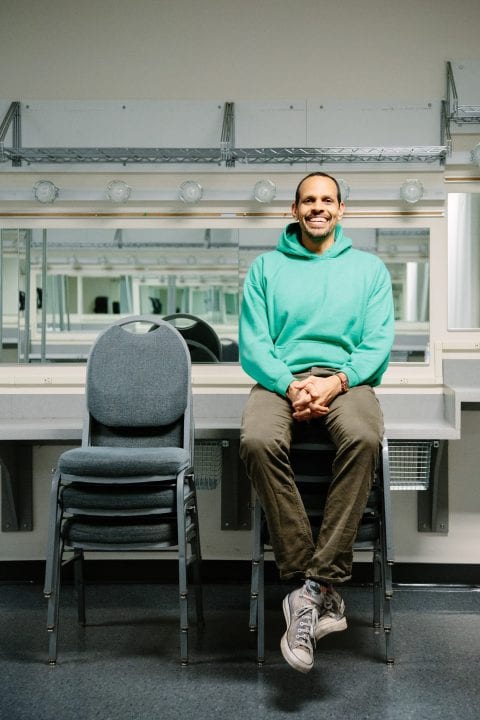
On Ross Gay and Catalog of Unabashed Gratitude
February 21, 2017
By Gabrielle Bates
I feel like a different type of tenderness might be emerging.—Ross Gay
When Ross Gay read for the SAL Poetry Series last week, it was exactly what I needed. I dare say it was exactly what we all needed. All of us streaming into that auditorium from the cold—carrying our bodies quickly, or slowly—hungry, or full—straight from work, or no work, or school or basketball practice or a baby’s crib—each variation of us—we sat, and there was Ross Gay, smiling, resplendent in a green t-shirt, inviting us to smile too, and laugh and gasp and grab for our neighbor’s hand. His stunning ambition—linguistic, relational, emotional—is still with me as I write this. Gay, it turns out, is just as effusive in person as he is in the poems of his most recent collection Catalog of Unabashed Gratitude.
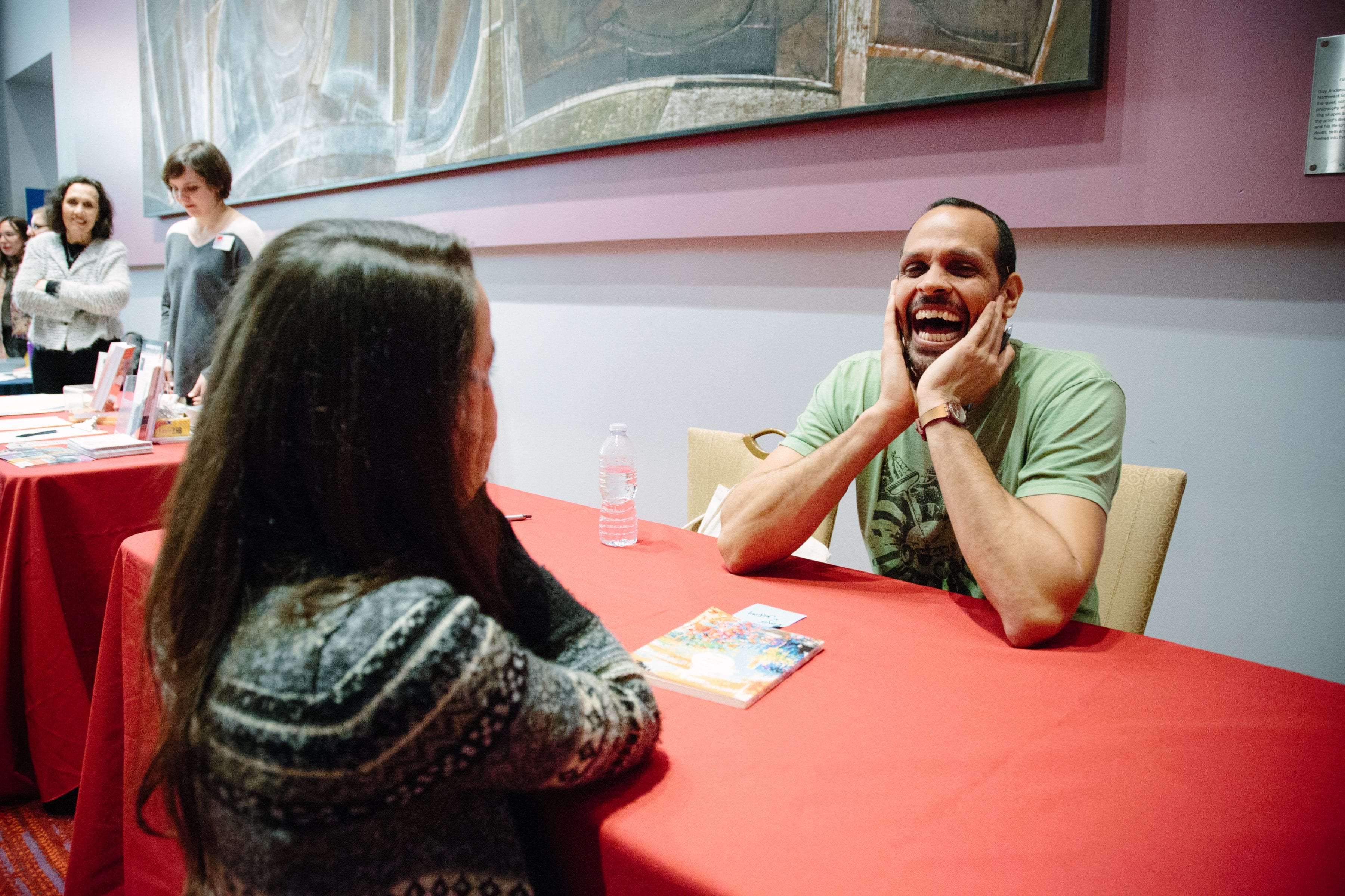
I read this collection for the first time last year, while I was still in poem-school, busy trying to be taken seriously. The brightly colored book beckoned from the shelf at Open Books, and I was instantly hooked. Gay dared to praise without irony and embody deep sentiment in a way that risked being seen as silly. He took the kind of risks I thought were off limits, and thus opened a door. As soon as I finished it, I bought a copy for my mother, even though she doesn’t typically read poetry. It’s the kind of book one wants to give as a gift.
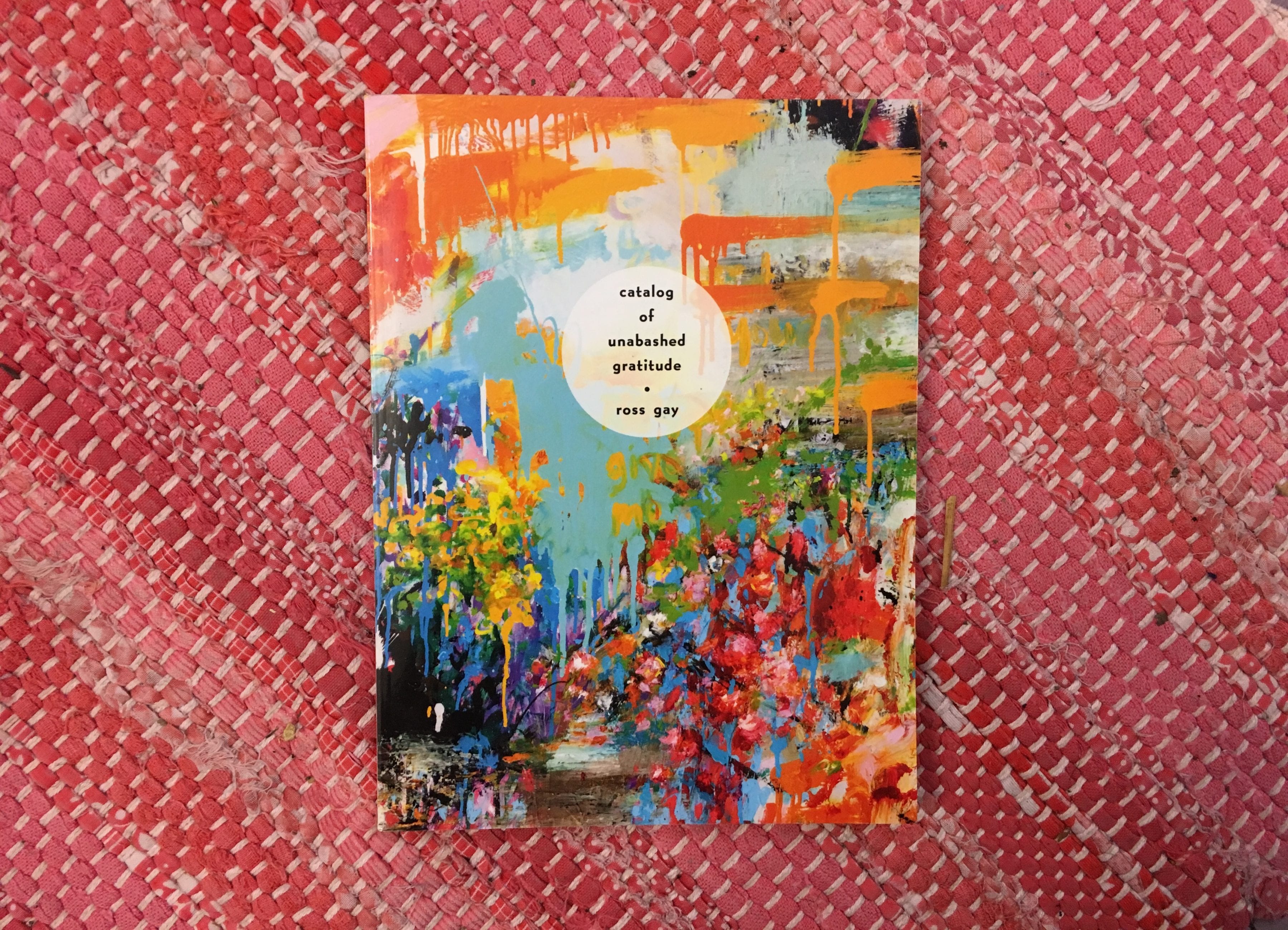
Formally, the poems are varied. At times, the odes progress across the page in short careful lines—ants pincing their way towards a fig; other times, they sprawl long and wide. But no matter the form, these poems evidence a daily practice of attentiveness and an understanding of how deeply intertwined are the simple and complex, devastating and joyful, loss and gain. The title poem “Catalog of Unabashed Gratitude” begins with an invitation (“Friends, will you bear with me today, / for I have awakened”) and ends, 12 pages later, with the lines:
Soon it will be over,
which is precisely what the child in my dream said,
holding my hand, pointing at the roiling sea and the sky
hurtling our way like so many buffalo,
who said it’s much worse than we think,
and sooner; to whom I said
no duh child in my dreams, what do you think
this singing and shuddering is,
what this screaming and reaching and dancing
and crying is, other than loving
what every second goes away?
Goodbye, I mean to say.
And thank you. Every day.
This poem—with all its direct addresses to the audience, dizzying departures, humor, and tenderness—was thrilling to hear live. Gay’s voice grew loud and breathless as a giddy torrent, sweeping all of us together, making us participants in his ambitious profusion. In addition to this and other poems from Catalog of Unabashed Gratitude, Gay also read a few short essays, which he calls—because he’s this wonderful—“Delights.” “Attending to what delights you,” Gay says, “is a muscle.” He views writing these essayettes, which he attempts to do everyday, as a way of working out that muscle, a way of practicing the discipline of joy.
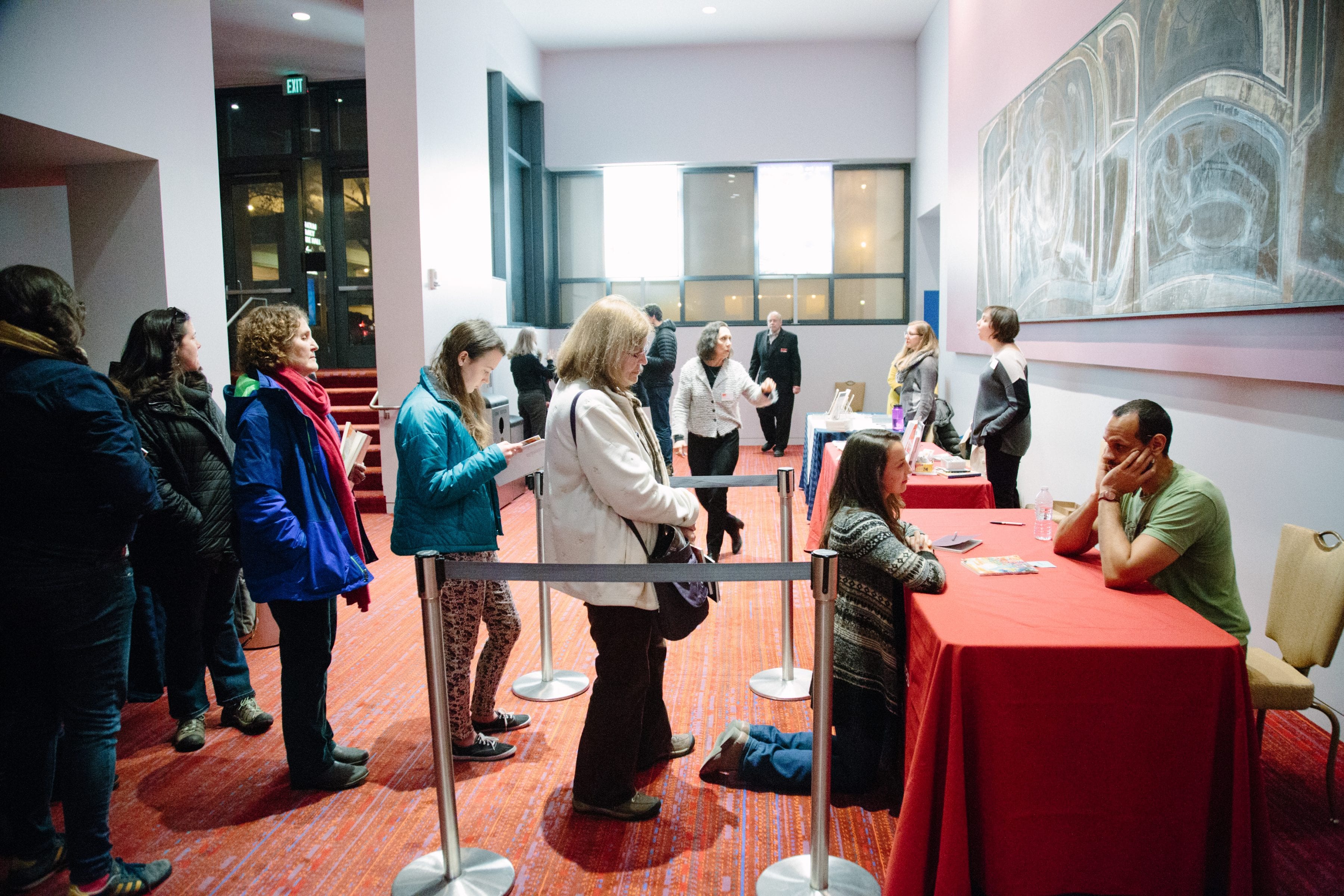 Lately, joy and empathy have been more difficult for me than they once were. Gay has helped me see, through his work and his very presence, that there are actions I can take to build those muscles up again. More than anything else, this—joy as discipline—is what I took with me from Ross Gay’s reading. It’s a charge I’m ready to take.
Lately, joy and empathy have been more difficult for me than they once were. Gay has helped me see, through his work and his very presence, that there are actions I can take to build those muscles up again. More than anything else, this—joy as discipline—is what I took with me from Ross Gay’s reading. It’s a charge I’m ready to take.
Looking back over the notes I scribbled during the Q&A after Gay’s reading, I read the following, accompanied by some gazillion stars:

“Joy is approximate to understanding that we are fading as we speak. This fading is a fundamental connection between us, a nourishment. If we understand that, we might care for each other better.”
Amen, Ross Gay. And thank you.
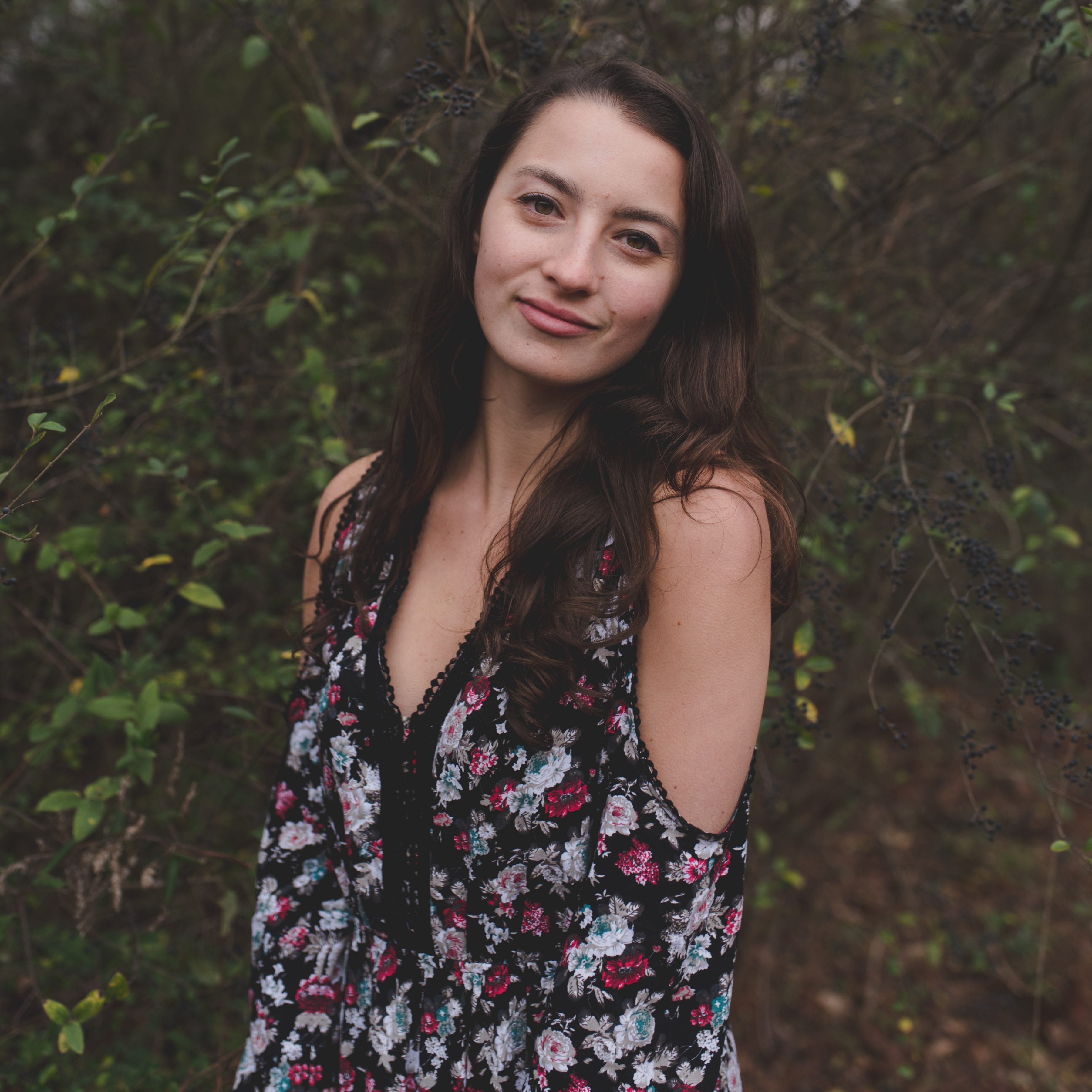 Gabrielle Bates is a writer and visual artist from Birmingham, Alabama, currently living in Seattle, where she works at Open Books: A Poem Emporium and serves on the editorial board of Poetry Northwest, the Seattle Review, and Broadsided Press. Her poems and poetry comics appear in Poetry, Best of the Net 2015, the Missouri Review, Washington Square, Black Warrior Review, Mid-American Review, and Guernica, among other journals. She is a Made at Hugo House fellow, a Bread Loaf Writers Conference scholarship recipient, and she holds an MFA in poetry from the University of Washington. Find her online or on Twitter.
Gabrielle Bates is a writer and visual artist from Birmingham, Alabama, currently living in Seattle, where she works at Open Books: A Poem Emporium and serves on the editorial board of Poetry Northwest, the Seattle Review, and Broadsided Press. Her poems and poetry comics appear in Poetry, Best of the Net 2015, the Missouri Review, Washington Square, Black Warrior Review, Mid-American Review, and Guernica, among other journals. She is a Made at Hugo House fellow, a Bread Loaf Writers Conference scholarship recipient, and she holds an MFA in poetry from the University of Washington. Find her online or on Twitter.